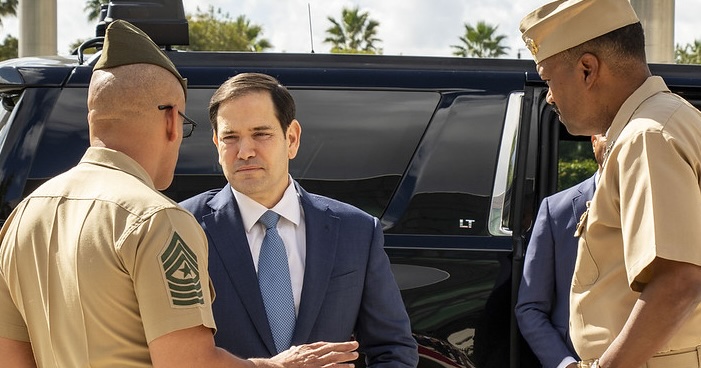Already a subscriber? Make sure to log into your account before viewing this content. You can access your account by hitting the “login” button on the top right corner. Still unable to see the content after signing in? Make sure your card on file is up-to-date.
The State Department has unveiled a major reorganization plan that aims to streamline its operations by eliminating 132 domestic offices, cutting around 700 positions in Washington DC, and more.
Some shit you should know before you read: Shortly after President Trump returned to the Oval Office, he directed his cabinet members to shrink the federal government’s footprint by cutting budgets, consolidating agencies, and eliminating programs his administration viewed as wasteful or overreaching. The Environmental Protection Agency faced some of the steepest cuts, with deep reductions in both funding and regulatory authority. The Department of Education saw proposed rollbacks to public school funding and student loan initiatives, while the Department of Housing and Urban Development lost key support for affordable housing efforts. Trump officials also moved to dismantle the US Agency for International Development, aiming to absorb it under the State Department’s umbrella. The White House has defended these actions as necessary to streamline bloated agencies and reallocate money toward priorities like national defense, border enforcement, and economic growth.

What’s going on now: In an announcement, Secretary of State Marco Rubio unveiled a total reorganization of the State Department, describing it as a necessary overhaul to reverse “decades of bloat and bureaucracy.” The plan outlines cuts to 132 of the department’s 734 domestic offices, a 15% reduction in US-based staffing, and the elimination of approximately 700 Washington-based jobs. Rubio said the restructuring was an effort to streamline the agency and bring it “into the 21st century,” claiming the existing organizational structure was “beholden to radical political ideology” and had lost focus on core national interests.
Among the most significant changes is the elimination of the Undersecretary for Civilian Security, Democracy, and Human Rights—a position long associated with advancing global human rights initiatives. Several offices—including those focused on global criminal justice, conflict stabilization, and civilian security—are being disbanded or absorbed into broader departments. Issues like refugee assistance, religious freedom, and human trafficking will now fall under an expanded Office of the Coordinator of Foreign Assistance and Humanitarian Affairs. Rubio justified these moves by claiming that certain bureaus had become platforms for ideological activism. He singled out the Bureau of Democracy, Human Rights, and Labor, accusing it of waging “vendettas against ‘anti-woke’ leaders” and “transforming hatred of Israel into concrete policies such as arms embargoes.”
The reorganization also includes the creation of a new Bureau of Emerging Threats, which will focus on cybersecurity, artificial intelligence, and other digital threats. Though no embassies or consulates will be closed immediately, Rubio and other department officials indicated that future changes to overseas operations may follow.
Despite growing concerns among some members of Congress, Rubio maintains that these reforms are essential for returning the State Department to “the traditional roots” of American diplomacy. In a statement, Secretary Rubio said, “Today is the day. Under President Trump’s leadership and at my direction, we are reversing decades of bloat and bureaucracy at the State Department. These sweeping changes will empower our talented diplomats to put America and Americans first.”






